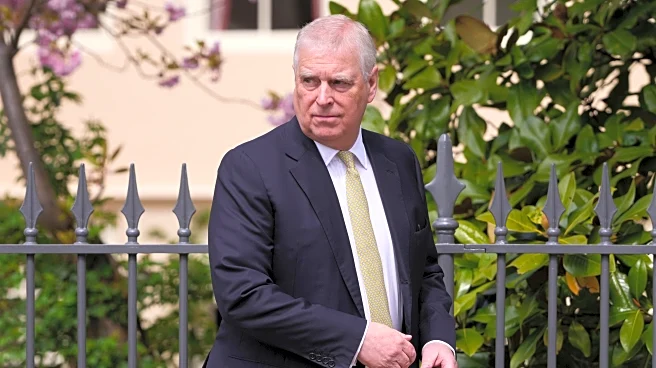What is the story about?
What's Happening?
A federal appeals court has ruled in favor of President Trump, allowing him to withhold $2 billion in foreign aid payments. This decision overturns a previous lower-court order that blocked the administration's plans to reduce disbursements from the US Agency for International Development (USAID). The ruling follows a lawsuit by nonprofit organizations challenging the funding freeze, which was initially imposed by Trump on his first day in office. The court's decision is based on the argument that the plaintiffs lacked standing to contest the president's authority under the Impoundment Control Act of 1974. The ruling is seen as a victory for the Trump administration's efforts to cut foreign aid spending.
Why It's Important?
The court's decision to allow the reduction of foreign aid has significant implications for U.S. foreign policy and international relations. It reflects the Trump administration's 'America First' approach, prioritizing domestic spending over international assistance. The reduction in aid could impact U.S. influence abroad, as foreign aid is often used as a tool for diplomacy and fostering international partnerships. The decision may also affect the operations of organizations relying on USAID funding, potentially disrupting projects aimed at addressing global challenges such as poverty, health, and education. The ruling highlights the ongoing debate over the role of foreign aid in U.S. policy and its effectiveness in achieving strategic objectives.
What's Next?
The Trump administration is likely to proceed with plans to further reduce foreign aid spending, potentially targeting additional programs and grants. The decision may prompt reactions from international partners and aid organizations, who may seek alternative funding sources or adjust their operations. The ruling could also lead to increased scrutiny of USAID and other federal agencies, as the administration continues to push for efficiency and accountability in government spending. The broader implications of reduced foreign aid will be monitored by policymakers and stakeholders, assessing its impact on U.S. global standing and international development efforts.
Beyond the Headlines
The reduction in foreign aid raises ethical considerations about the U.S.'s responsibility to support global development and humanitarian efforts. It also prompts discussions on the balance between national interests and international obligations. The decision may influence future debates on foreign aid policy, including the criteria for funding allocation and the role of aid in advancing U.S. strategic goals. Additionally, the ruling could set a precedent for executive authority in budgetary decisions, potentially affecting the separation of powers and checks and balances within the U.S. government.















